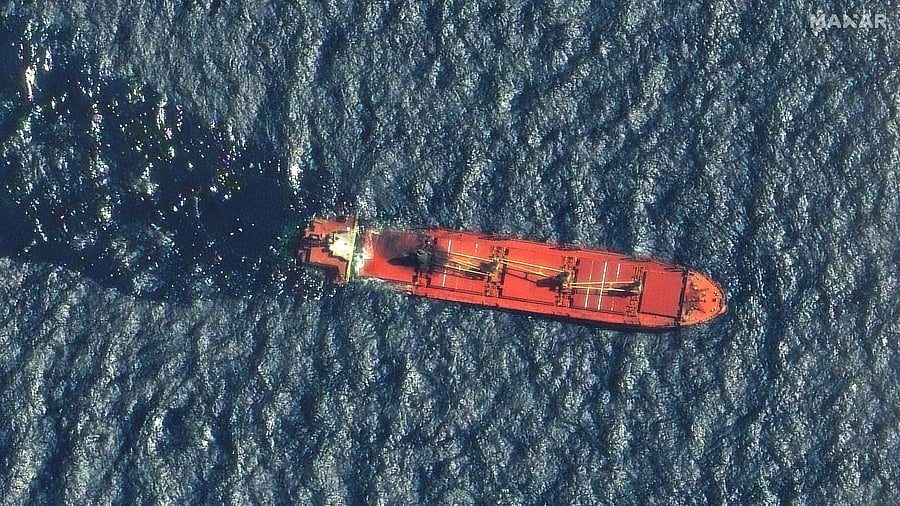
A satellite image shows the Belize-flagged and UK-owned cargo ship Rubymar, which was attacked by Yemen's Houthis, according to the US military's Central Command, before it sank, on the Red Sea, March 1, 2024.
Credit: Reuters Photo.
Cairo: One of two anti-ship ballistic missiles fired by Yemen's Houthis at the container vessel M/V MSC SKY II in the Gulf of Aden hit the ship and caused "damage", the US Central Command (CENTCOM) said on Tuesday.
Initial reports indicated no injuries and the Liberian-flagged, Swiss-owned container vessel did not request assistance and continued on its way, CENTCOM said in a statement.
A military spokesperson for the Iran-aligned Houthis said on Monday that they targeted the vessel with "a number of suitable naval missiles". Houthis are targeting Red Sea shipping lanes in support of Palestinians in the Israel-Hamas war in Gaza.
The US military said that Houthis also launched an anti-ship ballistic missile from Yemen into the southern Red Sea, however, it impacted the water with no damage or injuries to commercial or US Navy ships.
CENTCOM forces conducted "self-defence" strikes against two anti-ship cruise missiles that presented "an imminent threat" to merchant vessels and US Navy ships in the region, the statement added.
The United States and Britain have launched strikes on Houthi targets in Yemen and redesignated the militia as a terrorist group.
Houthis' Red Sea attacks have disrupted global shipping, forcing firms to re-route to longer and more expensive journeys around southern Africa, and stoked fears that the Israel-Hamas war could spread to destabilise the wider Middle East.